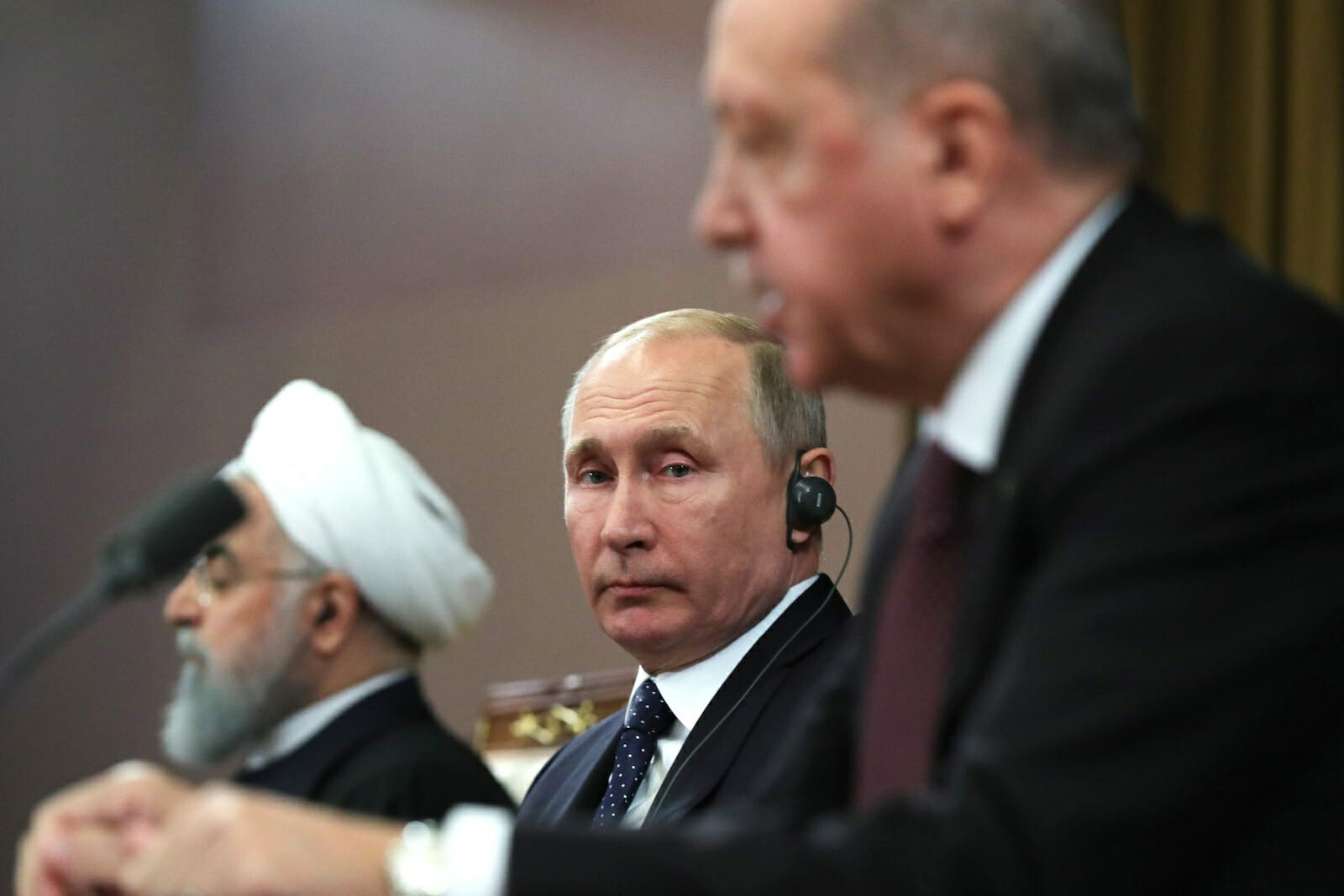
Russia’s Playbook for Middle East Energy Security
Nuclear energy diplomacy is a game of relationships. This is especially true in the Middle East, where governments face water scarcity, political and economic challenges but increasingly underreported energy scarcity. Civil nuclear offers Middle East governments an avenue to solving energy insecurity through new geopolitical partnerships that will change the political dynamics of the region for decades to come.
Russia is establishing deep relationships with authoritarian governments in the region for the development of civil nuclear power. These agreements — crafted to survive changes of leadership and insolvency — will continue for many decades and is their portal to cooperation in other strategic areas. Recent news about the sale of a Russian air defense system to Turkey, despite US protests, hints at such strategic cooperation.
Today, Russia’s state-owned nuclear industry, collectively under Rosatom, is thriving via such state-to-state agreements. Russia retains much control over the nuclear program in the short term and close bilateral relations in the long-term. Recently, Rosatom was also a finalist for supplying Saudi Arabia’s nascent nuclear energy sector, which further proves its resiliency as a vital regional supplier.
Turkey has chosen to pursue its nuclear program on a bilateral basis with Russia through a strategic partnership. Its constitutionally-ratified treaty with Russia places Turkey’s nuclear program above any possible future legal or political challenges. The presence of both heads of state – Erdogan and Putin – at the 2018 groundbreaking ceremony for Turkey’s first nuclear power plant made clear the political dimension of the partnership.
Civil nuclear power has always been on the radar in the Middle East, but it is only in the last decade that such plans have been put into practice. At least five countries — Egypt, Turkey, the UAE, Saudi Arabia, and Iran — have or are on the way to installing nuclear power plants. A few others, such as Jordan are in advanced stages of planning. Civil nuclear technologies from suppliers in China, France, Japan, Russia, South Korea and the US are bidding for the funding, building or operating these highly capital-intensive projects.
Russia is also now building nuclear power plants in Egypt and Iran. Until 2018, it was under contract on a civil nuclear project in Jordan and is currently a bidder for a project in Saudi Arabia. As for the other five supplier states, the results are mixed. Private US companies, such as Westinghouse (just emerging from bankruptcy), are hampered by a lack of state support. They are also constrained by the US Atomic Energy Act of 1954 Section 123, which means a de facto reduction of nonproliferation and security standard. While support of civil nuclear power is a part of China’s ambitious Belt and Road Initiative, it has not been as aggressive in pursuing this particular area abroad.
Russia’s advantage arises from several factors. Deployment of civil nuclear power takes a long time to fruition, and the rewards of the capital-intensive outlay are realized only 10 to 15 years later. Russia understands this long game and has geared its civil nuclear export strategy to gain strategic advantage. Its governance model works best at the state-to-state level, patiently forging the necessary commitments from the partner government to ensure that Russian interests are protected during this lengthy prove-in period. It seeks sovereign guarantees so that any civil nuclear deal survives a change in the governing regime, and that any future leadership commits to continue planned installations or ongoing deployments.
Moreover, Russia employs its sovereign wealth fund to offer generous financial terms to countries that cannot easily tap capital markets.
Nuclear cooperation lasts many decades (or even a century) and offers long-term access to key decision makers. It is the entry point through which bilateral relationships in a variety of other areas — both economic and political — can be forged. Russia’s one-on-one civil nuclear diplomacy with other authoritarian leaders in the region — Erdogan in Turkey or Sisi in Egypt — may help these nations’ energy security goals, but it also encourages the already authoritarian tendencies of such leaders and allows anti-democratic forces to be more firmly rooted in the region.
Unfortunately, the chaotic foreign policy under the Trump administration, where even traditional allies in the region are side-lined, weakens US interests and democratic ideals especially at a time when various polarizing forces threaten regional and global stability. Energy Secretary Rick Perry’s covert attempts to supply the Saudis with US nuclear technology without congressional oversight only exacerbates a fragile US nuclear export market and raises the specter of another rogue nuclear nation.
The Trump administration’s noisy call for disengagement from overseas commitments leaves the Middle East seeking new partners to fill the void — one that Russia and China are poised to do.

